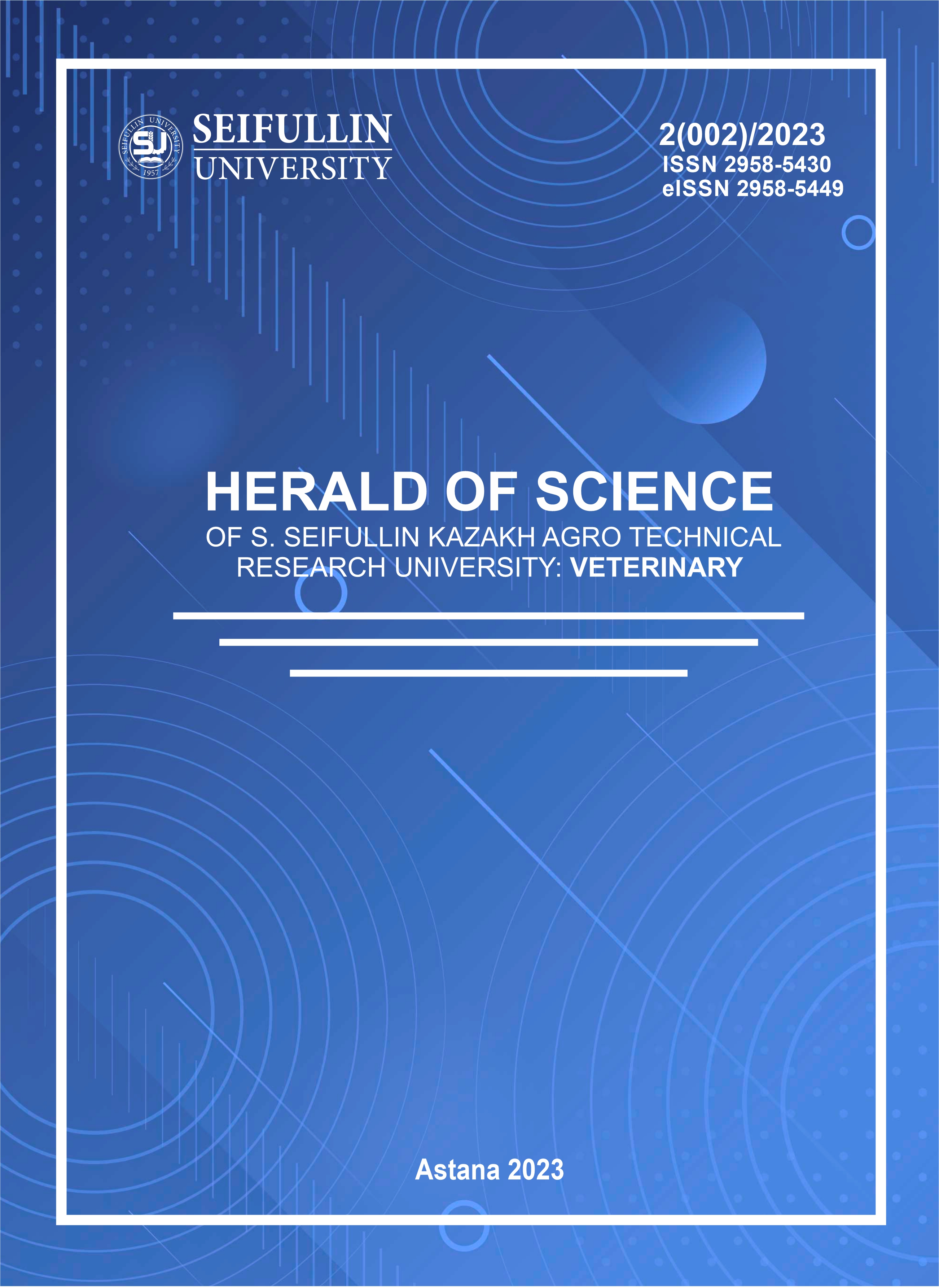BIOLOGICAL CHARACTERISTICS OF RHODOCOCCUS EQUI ISOLATED IN THE REPUBLIC OF KAZAKHSTAN
DOI:
https://doi.org/10.51452/kazatuvc.2023.2(002).1424Keywords:
biochemical characteristic; blood agar; isolate; tryptone soy agar; ram erythrocyte; Rhodococcus equi.Abstract
Rhodococcus equi is characterized by pyogranulomatous bronchopneumonia, septic arthritis, osteomyelitis, ulcerative enterocolitis, mesenteric lymphadenopathy, neonatal diarrhea, and sudden death of young animals. The development of a clinical disease is associated with the immunocompetence of the body of foals. As a worldwide soil infection, it is responsible for approximately 3% of all foal deaths, with a mortality rate of approximately 50%. The aim of our research was to study the morphological and biochemical properties of the putative R. equi strain isolated by us on the territories of our republic. At about 3-4 months of age, foals are capable of mounting an immune response against R. equi, which is why vaccination is given at an early age. The horse industry worldwide urgently needs an effective vaccine to prevent R. equi disease in foals, and current scientific research is focused on developing a vaccine using a local strain. We collected 27 pools manure and 27 pools soil samples from the Almaty, Zhambyl, Turkestan, and East Kazakhstan regions for bacteriological research. The samples were taken from exercise pens, areas within 100 meters of stables, passages, ditches, roads, and flower beds. We isolated a characteristic strain of R. equi and studied its cultural, morphological, tinctorial, and biochemical properties. Out of all the isolates, only the one from the Almaty region was a typical representative of the species Rhodococcus equi.

